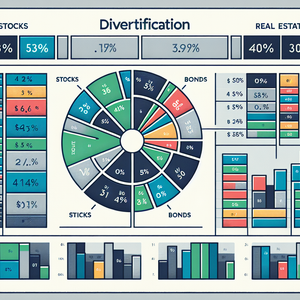Bootlegging and Beyond: The Dark Side of Gatsby's Wealth

To grasp the origins of Gatsby's wealth, one must first understand the historical backdrop of the 1920s in America. The Prohibition Act of 1920, which made the manufacture, sale, and transportation of alcoholic beverages illegal, led to a dramatic rise in organized crime. Speakeasies—secret bars that emerged in defiance of the law—became popular social hubs, and the demand for illegal alcohol skyrocketed. This cultural shift facilitated a lucrative market for those willing to engage in illegal activities, setting the stage for Gatsby's financial ascent. During this time, crime syndicates flourished, with figures like Al Capone becoming synonymous with the illegal liquor trade. The Prohibition era created an environment where the lines between legality and illegality blurred, allowing individuals to amass fortunes quickly through unethical means. Gatsby's wealth, therefore, can be viewed as a reflection of this broader societal trend, where the pursuit of the American Dream often collided with moral compromise.
Gatsby’s Alleged Bootlegging Operations
While Fitzgerald intentionally leaves much of Gatsby's fortune ambiguous, subtle hints throughout the narrative suggest his involvement in bootlegging. Characters like Meyer Wolfsheim, a notorious gambler and rumored mobster, indicate Gatsby's connections to the criminal underbelly. Their interactions in the novel imply that Gatsby did not merely acquire his wealth through legitimate means. For instance, Gatsby's extravagant parties, filled with the elite of society, serve as a façade for his deeper ties to organized crime. The transformation of James Gatz into the wealthy Jay Gatsby raises questions about the legitimacy of his fortune. Gatsby's rapid ascent from poverty to opulence invites speculation that he engaged in bootlegging or other illicit activities to accumulate his wealth quickly. Many scholars point to the fact that successful figures of the time, including infamous gangsters, thrived during Prohibition, suggesting that Gatsby's financial success is emblematic of a broader trend toward corruption and crime as viable pathways to wealth. Moreover, Gatsby’s lavish lifestyle, characterized by extravagant parties and a grand mansion, can be viewed as a means to garner social acceptance and win the affection of Daisy Buchanan. This pursuit illustrates how wealth can often distort personal relationships, highlighting the duality of Gatsby's existence—while he is surrounded by people, he remains profoundly isolated in his quest for love and validation.
Cultural Reflections and the American Dream
Gatsby's story is not just about his wealth; it serves as a reflection of the broader cultural landscape of the Roaring Twenties, an era marked by excess, glamour, and moral ambiguity. The celebration of wealth during this time often overshadowed the ethical implications of how that wealth was obtained. Fitzgerald critiques the notion of the American Dream, illustrating how the relentless pursuit of wealth can lead individuals down dark paths, ultimately culminating in tragedy. The allure of wealth in the 1920s was not solely about financial gain; it was also about social acceptance and status. Gatsby's efforts to build a lavish lifestyle were primarily driven by his desire to win back Daisy, the love of his life. However, this obsession with material success distorts his relationships and ultimately isolates him, revealing the hollowness at the core of his pursuits. Gatsby's tragic end serves as a cautionary tale about the ephemeral nature of success built on shaky foundations.
Jay Gatsby's wealth is a complex tapestry woven with ambition, desire, and criminal undertones. His success, often perceived as the pinnacle of the American Dream, is underpinned by the darker realities of bootlegging and organized crime that thrived during the Prohibition era. By exploring the roots of Gatsby's fortune, we gain insight into the cultural and social dynamics of the 1920s, revealing how the pursuit of wealth can lead to moral compromise and personal tragedy. Gatsby serves as a poignant reminder that while the dream of wealth and success is enticing, it is often fraught with peril, illuminating the enduring complexities of the American Dream. In a society that rewards ambition without regard for ethics, Gatsby's story stands as a timeless reflection on the high cost of success achieved through dubious means.
Financial Crime Analyst
Major banks, financial institutions, government agencies, consulting firms
Core Responsibilities
Analyze financial transactions to detect patterns of fraud or money laundering.
Conduct investigations into suspicious financial activities related to organized crime.
Prepare detailed reports and present findings to law enforcement agencies or internal stakeholders.
Required Skills
Strong analytical skills and attention to detail.
Proficiency in data analysis software and financial modeling.
Knowledge of regulatory compliance and financial legislation.
Cultural Historian (Prohibition Era Specialist)
Universities, museums, historical societies, cultural institutions
Core Responsibilities
Research and analyze historical documents, artifacts, and narratives related to the Prohibition era.
Develop educational programs and presentations about the socio-economic impacts of Prohibition on American culture.
Publish articles and papers that contribute to the broader understanding of the era’s influence on contemporary society.
Required Skills
Strong research and writing skills, with a focus on historical analysis.
Ability to engage diverse audiences through presentations and public speaking.
Familiarity with archival research methods and historical preservation practices.
Corporate Compliance Officer
Corporations across various industries, especially finance, healthcare, and manufacturing
Core Responsibilities
Ensure that a company adheres to legal standards and internal policies to prevent illegal activities.
Develop and implement compliance programs to detect and prevent financial crimes.
Conduct training sessions for employees on ethics and compliance issues.
Required Skills
In-depth knowledge of regulatory requirements and compliance frameworks.
Strong communication and interpersonal skills to effectively train staff.
Problem-solving abilities to navigate complex compliance challenges.
Market Research Analyst (Focus on Illegal Markets)
Market research firms, think tanks, governmental policy analysis offices
Core Responsibilities
Analyze market trends and consumer behavior in illegal industries, such as bootlegging or the underground economy.
Collect and interpret data to provide insights on the dynamics of illicit markets and their impact on legitimate businesses.
Prepare reports that help stakeholders understand the economic implications of illegal activities.
Required Skills
Strong quantitative and qualitative research skills.
Proficiency in statistical analysis tools and data visualization software.
Ability to synthesize complex information into actionable insights.
Ethics Consultant
Consulting firms, corporate governance organizations, non-profits focused on ethics
Core Responsibilities
Advise organizations on ethical practices and corporate social responsibility to avoid unethical behavior.
Conduct audits and assessments to identify potential areas of ethical risk within organizations.
Develop and implement training programs to foster a culture of ethical behavior among employees.
Required Skills
Strong understanding of ethical theories and corporate governance.
Excellent communication skills to convey complex ethical concepts effectively.
Experience in risk assessment and management.


